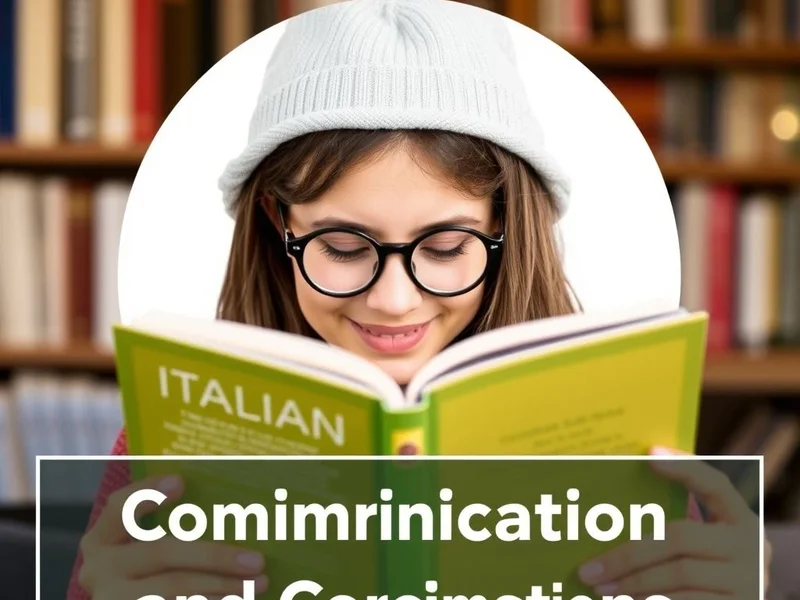How to Use "Essere interessato a": Meaning and Practical Examples
Have you ever wondered how to express curiosity or a desire for something in Italian in a natural way? If you are an adult learning Italian as a second language and want to improve your practical Italian vocabulary, expressions like "essere interessato a" are essential for everyday communication. This expression, seemingly simple, is often a source of doubt, especially regarding the correct preposition to use. Understanding its meaning essere interessato a, its structure, and the examples with essere interessato a will help you speak more fluently and authentically. In this article, we will explore in detail how to use this common phrase, analyzing its grammar and the mistakes to avoid in order to communicate in Italian with greater confidence.

Table of Contents
- What does "Essere interessato a" mean?
- The Grammatical Structure: How Is It Used?
- Sentences and examples with "Essere interessato a"
- Crucial Differences: Common Mistakes to Avoid
- Similar or related expressions
- Conclusion
More: Essere grato a Improve Your Italian Gratitude Expressions
What does "Essere interessato a" mean?
- Literal Meaning: To have participation or direct involvement in something, often with a personal or material aspect.
- Esempio: "Lui è interessato all'eredità di suo zio." (He is involved in/has a stake in his uncle's inheritance.)
- Figurative Meaning: To feel curiosity, attention, or desire toward a person, an activity, or a topic.
- Esempio: "Sono interessato a imparare a cucinare italiano." (I am interested in learning to cook Italian.)
More: Essere contrario a Explained with Meaning and Practical Examples
The Grammatical Structure: How Is It Used?
The expression "essere interessato a" is formed with the auxiliary verb essere followed by the adjective interessato/a/i/e, which agrees in gender and number with the subject, and the preposition a. This preposition is essential and introduces what arouses the interest.
The general structure is:
[Subject] + essere (conjugated) + interessato/a/i/e + a + [Noun / Pronoun / Verb in the infinitive]
Examples:
- Maria è interessata al nuovo corso di yoga. (a + il = al)
- Noi siamo interessati a visitare Firenze. (a + verb in the infinitive)
- Loro sono interessati a te. (a + pronoun)
As also reported by the Treccani Vocabulary, the adjective "interessato" is typically followed by the preposition "a" to indicate the object of interest (e.g., "interessato a qualcosa", "interessato a fare qualcosa") Treccani.
More: Essere attento a Meaning and Practical Examples for Learners
Sentences and examples with "Essere interessato a"
Here are some practical examples to better understand how to use essere interessato a in real contexts. These will help you understand natural speech and integrate the expression into your vocabulary.
📍 Context: At work
Persona A: "Sei **interessato a** partecipare al progetto di espansione?"
Persona B: "Sì, sono molto **interessato a** quella opportunità!"
📍 Context: Free time / Hobbies
Persona A: "Mio figlio è davvero **interessato a** giocare a calcio in una squadra."
Persona B: "Perfetto! C'è un'ottima accademia qui vicino."
📍 Context: Study / New knowledge
Persona A: "Sono **interessata a** capire meglio la grammatica italiana del congiuntivo."
Persona B: "Posso darti alcuni libri che potrebbero aiutarti."
Crucial Differences: Common Mistakes to Avoid
One of the most common mistakes for those learning Italian is confusing the preposition or the verb structure. Let’s look at the crucial differences with "essere interessato a".
Essere interessato A Vs. Interessare (Transitive Verb)
Do not confuse the adjective "interessato/a" with the verb "interessare". The verb "interessare" is transitive and means "to arouse interest in someone". It works like "piacere" (a me piace...).
With "Essere interessato a" (adjective + preposition): The subject feels interest.
- Esempio: "Io sono interessato a comprare quella casa." (The interest comes from me.)
With "Interessare" (verb): Something arouses interest in someone else.
- Esempio: "Quella casa mi interessa molto." (The house arouses interest in me.)
Essere interessato A Vs. Essere interessato DI (Wrong!)
It is a common mistake to use "di" instead of "a". Always remember that "interessato", when expressing curiosity or attention, is always followed by "a".
- Correct: "Sono interessato a leggere quel libro."
- Wrong: "Sono interessato di leggere quel libro."
Similar or related expressions
To further enrich your vocabulary, here are some expressions that have a similar meaning or are related to "essere interessato a":
| Similar Expression | Short Meaning | Example |
|---|---|---|
| Appassionarsi a | To begin to feel a strong passion for something. | "Mi sto appassionando alla musica classica." |
| Avere interesse per | To feel interest or curiosity for something. | "Ho interesse per la storia romana." |
| Tenere a | To give importance to something or someone. | "Ci tengo molto alla nostra amicizia." |
Conclusion
We hope this detailed guide has helped you understand and memorize the correct use of "essere interessato a". Remember that it is an essential expression for expressing curiosity and desires in Italian, always followed by the preposition "a". Now that you know its meaning essere interessato a and its structure, try using it in your conversations. What is the topic you are most interessato a discussing in Italian? Write a sentence in the comments using this expression!